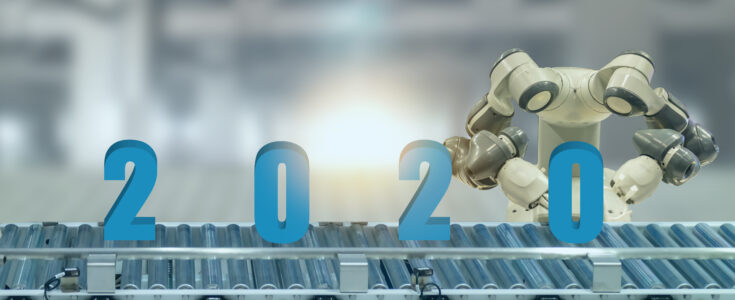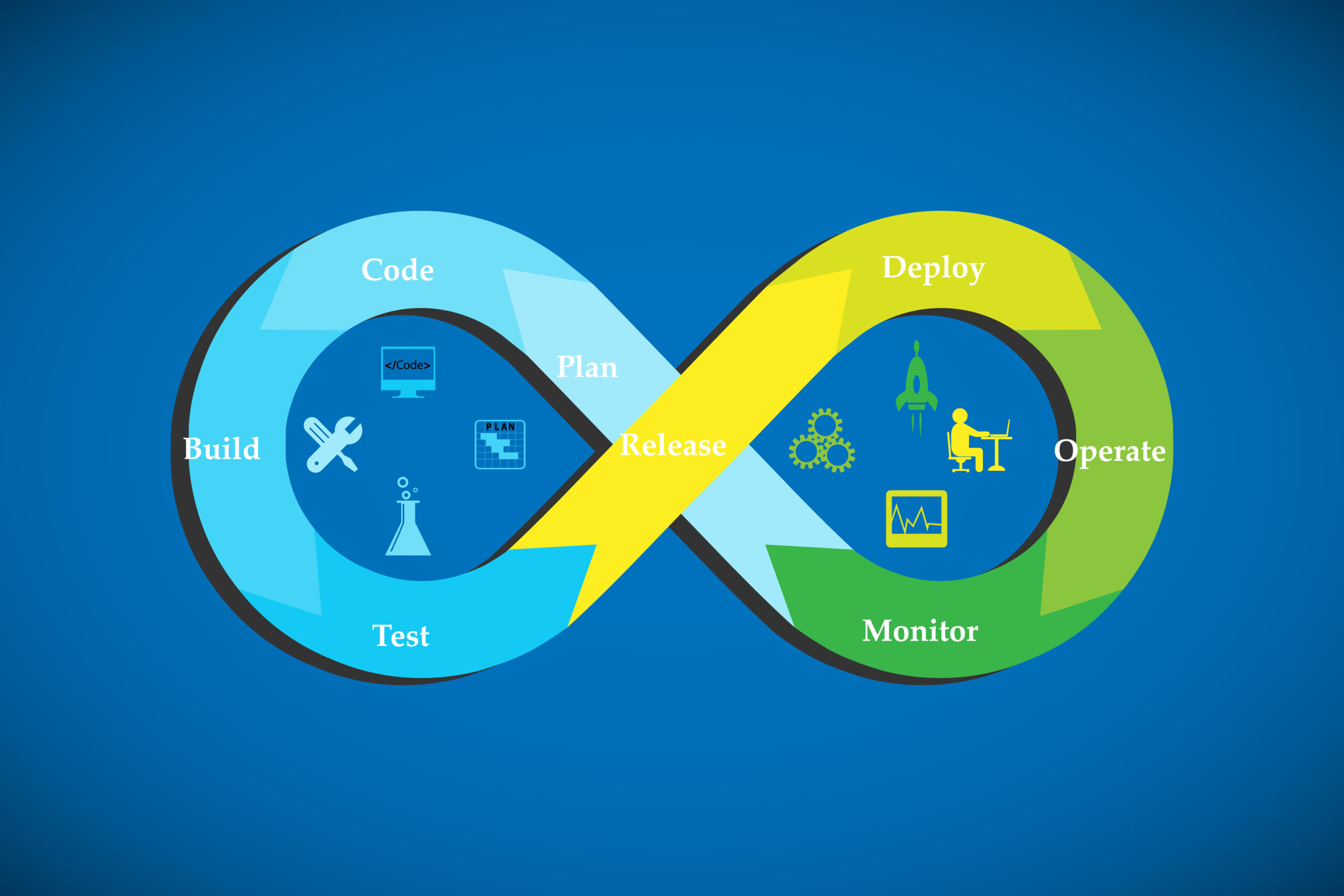
5 DevOps Trends to Watch in 2020

DevOps is growing up. Gone are the years where any discussion about DevOps was preceded by an explanation of what DevOps, Shift Left, and Agile actually were. As the collective understanding deepens through practice, I think we can agree that DevOps is finally established. Indeed, the global DevOps market is predicted to be worth $15 billion by 2026. What are the big trends to watch out for in 2020?
Digital Transformation is Changing DevOps Metrics
Quality at speed has been a DevOps mantra for years. When organizations wanted to demonstrate improvement as a result of DevOps, they often used speed metrics (release frequency, for instance). Forrester sees “business value” overtaking “velocity” as the primary metric of DevOps success, which tallies with Apexon’s own experiences with our customer base. While demonstrations of speed are a good indicator of agility, for customer-obsessed enterprises in the process of digital transformation, other metrics, such as customer satisfaction, are becoming more relevant.
1. Destination: Cloud
Cloud-native, hybrid cloud, multi-cloud, public cloud. Whichever route you take, your infrastructure and operations are heading to the cloud. That is because the cloud ecosystem is seen as the only way to handle modern applications and workloads at scale, especially as many of those are now cloud-native themselves. AWS, Azure and Google Cloud are all growing at a phenomenal rate. By 2022, Gartner says up to 60 percent of organizations will use an external service provider’s cloud-managed service offering. Gartner also identifies cloud computing as one of the top three investment areas for CIOs in 2020. The rush to cloud is a no brainer when you consider how it facilitates business agility in the digital age through continuous delivery. In parallel, containers and microservices have rapidly become fundamental to building and deploying DevOps. From a hiring perspective, these skills are hotly sought after, and perhaps it is also no wonder that attendance at events like KubeCon is gathering pace. As a result of microservices adoption, enterprises should expect to engage with service meshes in 2020 if they have not already done so. These help address management challenges associated with distributed environments.
2. Deploy DevOps at Scale
DevOps momentum is building. The DevOps market is growing at nearly 20 percent CAGR. Not only are organizations trying new DevOps initiatives, but they are also under pressure to scale existing projects fast. To date, cloud-based initiatives have enjoyed relatively high investment, but cost scrutiny will kick in as those initiatives start to scale.
Low- and no-code development platforms will flourish as they enable both citizen developers and pros to focus on the issues they really want to solve. We are on the cusp of a new era of innovation in enterprises. This digital creativity will not be confined to the software team or other technical specialists, which may represent a challenging shift in perspective for many organizations. They’ll also need to address the issue of managing a proliferation of new digital initiatives without adding unnecessarily to the overall complexity of the IT environment.
According to Gartner, there is little doubt that “digital toolboxes” are coming, “By 2023, 90% of enterprises will fail to scale DevOps initiatives if they do not create a shared self-service platform.”
3. Get Serious about Automation
“I&O leaders must shift to a strategic approach to automation,” predict Gartner. “By 2025, more than 90% of enterprises will have an automation architect, up from less than 20% today.” Our view? Apexon, 100% backs this approach. Pick almost any of the digital challenges faced by enterprises. Whatever the issue, increased automation is almost certainly part of the answer. AI tools are helping to bring us a step closer to the end-goal of zero-touch automation. Apexon Associates have a lot to say on the subject of automation, as regular readers of the blog will be aware, or you can check out some of Apexon’s other resources, like this DTV interview, ‘Putting the Fun in Software Automation’ or the webcast ‘The Future of Test Automation is AI.’ In 2020, advances in intelligent automation mean that zero-touch automation is becoming a realistic, if ambitious, goal for many.
4. Build System Resilience
Traditional testing focused on ensuring all the constituent parts of a wider whole working as they should. But in modern digital environments, the assumption now is that at any one time, something will misfire. Chaos engineering, sometimes known as failure-as-a-service, is part of the broader discipline of resilience engineering, and it is going to be increasingly crucial at helping DevOps professionals understand the implications of working within highly complex systems. What happens when parts of the system do not work as intended? How many small, seemingly insignificant individual failures does it take to bring about an outage or other worst-case scenarios? Chaos engineering is about conducting controlled experiments with a system in production to increase its resilience in the face of unexpected events. Resilience engineering and risk management is an established discipline in manufacturing and other industrial contexts. Netflix has been a prominent pioneer with its Chaos Monkey program. It’s time the rest of the DevOps community caught up.
5. Long Live DevSecOps
DevSecOps got real in 2019 due to the ripple effect of legislation like GDPR, together with the ongoing steady stream of data security breaches that hit the news. It moved from a buzzword that is spoken of to a practice that is done. This transformation needs to continue into 2020 as security policies will increasingly be mandated at the level of the code. DevSecOps badly needs to be a standard practice rather than an exciting variant of DevOps. I hope that when we talk about DevOps in the future, it will automatically signify security-as-code. Or perhaps we need to ditch the term DevOps altogether in favor of DevSecOps.
As a digital engineering services firm, Apexon is laser-focused on helping companies accelerate their digital initiatives from strategy and planning through to execution. Please tell us your biggest digital challenge for the year ahead, and we will solve it for you. Just fill in the form below.




